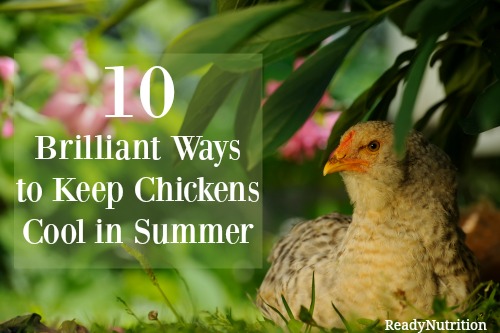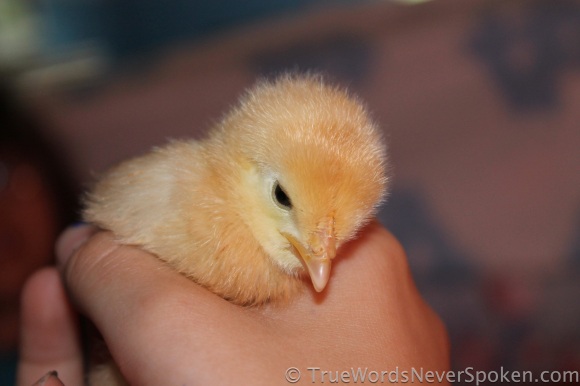I tried to post the photos from this site which I felt were excellent, but I was unable to do so. Please go to the site above to view the entire post with photos. Sorry, Anice
13 Common Chicken Diseases Every Chicken Keeper Should Know About (and How to Treat Them)
1. Fowl Pox
If you notice that your chickens develop white spots on their skin, scabby sores on their combs, white ulcers in their mouth or trachea, and their laying stops then you should grow concerned that your chickens are developing Fowl Pox.
There are treatment options for Fowl Pox. You can feed them soft food and give them a warm and dry place to try and recoup. With adequate care, there is a great chance that your birds can survive this illness.
If you would like to remove the odds of your birds even contracting this disease there is a vaccine available. If not, know that they can contact this disease from other contaminated chickens, mosquitos, and it is a virus so it can be contracted by air as well.
2. Botulism
If your chickens begin to have progressing tremors you should grow concerned. If your chickens have botulism the tremors will progress into total body paralysis which does include their breathing.
You will also notice their feathers will be easy to pull out and death usually occurs within a few hours.
But what can you do about it?
Well, there is an antitoxin that can be purchased from your local vet. Though it is considered to be expensive. However, if you catch the disease early enough you can mix 1 teaspoon of Epsom salts with 1 ounce of warm water. You can give it to them by dropper once daily.
If your chickens have contracted this disease it means that there has been some type of dead meat left near their food and water which contaminated it. Which means this disease is avoidable as long as you keep your chickens in a clean environment and clean up any dead carcass from around their environment.
3. Fowl Cholera
You should be suspicious of this disease if you see your birds begin to have a greenish or yellowish diarrhea, are having obvious joint pain, are struggling to breathe, and have a darkened head or wattle. Fowl Cholera is a bacterial disease that can be contracted from wild animals or food and water that has been contaminated by this bacteria.
But the downside to your chicken developing this disease is there is no real treatment. If by some chance your chicken survives, it will still always be a carrier of the disease.
So it is usually better to put them down and destroy their carcass so it will not be passed.
But there is a vaccine for your chickens to prevent the disease from ever taking hold.
4. Infectious Bronchitis
This disease hits close to home because it wiped out half of our flock when we were new to raising chickens. You’ll recognize this disease when you begin to hear your chickens sneezing, snoring, and coughing. And then the drainage will begin to secrete from their nose and eyes.Their laying will cease too.
But the good news is you can get a vaccine to stop this disease from impacting your chickens.
However, if you decide against that then you will need to move quickly when seeing these signs. Infectious Bronchitis is a viral disease and will travel quickly through the air.
To treat Infectious Bronchitis, give your chickens a warm, dry place to recoup. I gave my birds a warm herb tea and fed them fresh herbs, which seemed to help.
5. Infectious Coryza
Unfortunately, there is no vaccine to stop this disease.
Once your chickens contract this disease they should be put down. If not, they will remain a carrier of the disease for life which is a risk to the rest of your flock.
Be sure to discard the body afterward so no other animal becomes infected by it.
However, the light at the end of this tunnel is that even though this disease is a bacteria it only travels through contaminated water, other contaminated birds, and surfaces that have been contaminated with the bacteria.
So if you keep your chickens protected from other random chickens and keep their coop and water clean they should be safe from this disease.
6. Marek’s Disease
This disease is more common in younger birds that are usually under the age of 20 weeks.So you will know that this disease has struck your baby chicks if you begin to see tumors growing inside or outside of your chick. Their iris will turn gray and they will no longer respond to light. And they will become paralyzed.
Unfortunately, this disease is very easy for them to catch. It is a virus which means it is super easy to transmit from bird to bird. They actually obtain the virus by breathing in pieces of shed skin and feather from an infected chick.
However, the good news is there is a vaccine and it is usually given to day old chicks.
7. Thrush
Thrush with chickens is very similar to thrush that babies get.
You’ll notice a white oozy substance inside their crop (which is a space between their neck and body.) They will have a larger than normal appetite. The chicken will appear lethargic and have a crusty vent area. And their feathers will look ruffled.
It is important to mention that thrush is a fungal disease. This means it can be contracted if you allow your chickens to eat molded feed or other molded food. And they can also contract the disease from contaminated water or surfaces.
Though there is no vaccine, it can be treated by an anti-fungal medicine that you can get from your local vet. Be sure to remove the bad food and clean their water container as well.
8. Air Sac Disease
This disease first appears in the form of poor laying skills and a weak chicken. As it progresses, you will notice coughing, sneezing, breathing problems, swollen joints, and possibly death.Now, there is a vaccine for this illness, and it can be treated with an antibiotic from the vet. But it can be picked up from other birds (even wild birds) and it can be transferred from a hen that has it to her chick through the egg.
So just keep an eye out for any of these symptoms so it can be treated quickly and effectively.
9. Newcastle Disease
This disease also appears through the respiratory system. You will begin to see breathing problems, discharge from their nose, their eyes will begin to look murky, and their laying will stop. Also, it is common that the bird’s legs and wings will become paralyzed as well as their necks twisted.This disease is carried by other birds including wild birds. That is how it is usually contracted. But if you touch an infected bird you can pass it on from your clothes, shoes, and other items.
However, the good news is that older birds usually will recover and they are not carriers afterward.
But most baby birds will die from the disease.
There is a vaccine for the disease though the US is working to rid the country of the disease all the way around.
10. Mushy Chick
This disease obviously will impact chicks. It usually shows up in newly hatched chicks that have a midsection that is enlarged, inflamed, and blue tinted. The chick will have an unpleasant scent and will appear to be drowsy. Naturally, the chick will also be weak.
So this disease doesn’t have a vaccine. It usually is transmitted from chick to chick or from a dirty surface where an infected chick was. And usually, it is contracted from an unclean area where a chick with a weak immune system contracts the bacteria.
There is no vaccine for this disease, although sometimes antibiotics will work. But usually, when you come in contact with this disease you will need to immediately separate your healthy chicks from the sick ones.
Use caution as the bacteria within this disease (such as staph and strep) can impact humans.
11. Pullorum
This disease impacts chicks and older birds differently. The chicks will show no signs of activity, have a white paste all over their backsides, and show signs of breathing difficulty. Though some will die with no signs at all.
However, in older birds, you will see sneezing and coughing on top of poor laying skills.
This is a viral disease. It can be contracted through contaminated surfaces and other birds that have become carriers of the disease. Unfortunately, there is no vaccine for this disease and all birds that contract the disease should be put down and the carcass destroyed so no other animal will pick up the disease.
12. Avian Influenza
Avian Influenza is most commonly known as the bird flu. It was one of my initial fears of owning chickens because all you hear about on the news is how people get sick with bird flu from their chickens. However, after knowing the symptoms you’ll be able to put that fear to rest.You need to know how to act quickly if you are afraid your backyard birds have come in contact with it.
So the signs you will notice will include respiratory troubles. Your chickens will quit laying. They will probably develop diarrhea. You may notice swelling in your chicken’s face and that their comb and wattle are discolored or have turned blue.
And they may even develop dark red spots on their legs and combs.
Unfortunately, there is no vaccine and the chickens infected will always be carriers. Wild animals can even carry the disease from bird to bird.
Once your birds get this disease, they need to be put down and the carcass destroyed. And you will need to sanitize any area that the birds were in before ever introducing a new flock.
Use great caution because this disease can make humans sick.
And here is a great resource about avian influenza for all backyard chicken keepers. Hopefully, this will help to put your mind at rest about this disease and your backyard flock.
13. Bumblefoot
Bumblefoot is a disease that you’ll know exactly what you’re looking at when you see it.
It begins by your chicken accidentally cutting its foot on something. It can happen when they are digging in the garden, scratching around in mulch, and so many other ways. But then the cut gets infected. And the chicken’s foot will begin to swell. It can even swell up the leg.
So you can treat it by performing surgery (learn how here.) If not, the infection will eventually take over the chicken and claim its life.
Obviously, bumblefoot can happen very easily and there isn’t much you can do to prevent besides just keep a close eye on your chickens’ feet. If you notice they have a cut then be sure to wash and disinfect it to prevent this disease from setting up.
That is all of the common chicken diseases I have for you today.
However, there are many less common illnesses too. So just be sure to always pay attention to your flock and stay alert to any changes. Never be afraid to research. It is better to overreact than to underreact and miss something that could be detrimental to your whole flock.

 I must admit, this question had really never entered my head – I assumed they don’t!
I must admit, this question had really never entered my head – I assumed they don’t!